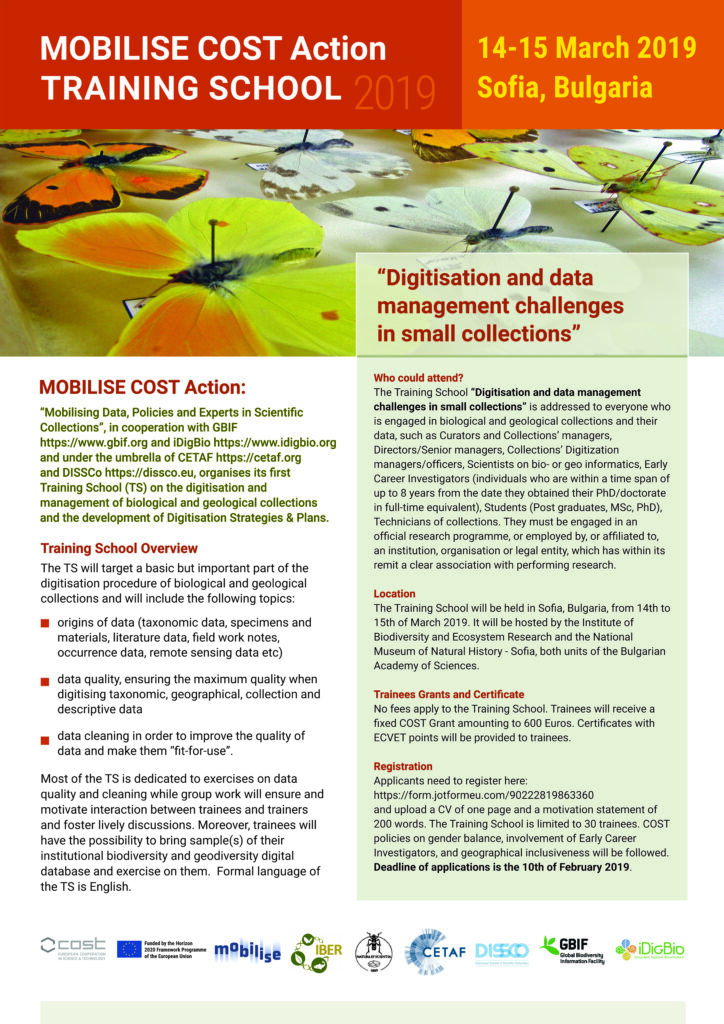
The First Training School on Digitization and Data Management of Collections!
MOBILISE COST Action: “Mobilising Data, Policies and Experts in Scientific Collections”, in cooperation with GBIF and iDigBio and under the umbrella of CETAF and DISSCo organises its first Training School (TS) in “Digitisation and data management challenges in small collections”.
This hands-on and interactive training initiative will give the opportunity to Natural History Institutions holding small collections to get informed and exercised on the digitisation and management of their biological and geological collections in order to be able to develop their own Institutional Digitisation Strategy & Plan.
This two-days TS will be held in Sofia, Bulgaria, on 14th and 15th of March, 2019, hosted by the Institute of Biodiversity and Ecosystem Research and the National Museum of Natural History – Sofia, both units of the Bulgarian Academy of Sciences. Deadline for applications is the 10th of February 2019. Applicants need to register in this link https://form.jotformeu.com/90222819863360 and upload, in the same link, a short CV of one page. Selected trainees will be duly informed individually. They will receive a COST Trainee Grant for their stay and travel costs. More information here.
COST
COST is an intergovernmental framework for European Cooperation in Science and Technology established to initiate networking and coordination of nationally funded research activities on a European level. It was established in 1971 by 19 member countries and currently includes 35 member countries across Europe, and Israel as a cooperating state. It facilitates bringing scientists together under light strategic guidance based on networks, called COST Actions, centred on research projects in fields that are of interest both to COST countries and cooperating countries.
OVERVIEW AND TIME SCHEDULE
The Training School (TS) “Digitisation and data management challenges in small collections” will target a basic but important part of the digitisation process of biological and geological collections. Origins of data (taxonomic data, specimens and materials, literature data, field work notes, occurrence data, remote sensing data, etc.) will be the first topic addressed. Then it will tackle the data quality issue, for ensuring the maximum quality when digitising taxonomic, geographical, collection and descriptive data. Finally, the TS will focus in data cleaning in order to improve the quality of data and make them “fit-for-use” by defining and determining error types, search and identify error instances, correct the errors, document error instances and error types and modify data entry procedures to reduce future errors.
The TS will be a hands-on experience, since, according to its schedule, most of the time is dedicated to exercises on data quality and cleaning while group work will ensure and motivate interaction between trainees and trainers and foster lively discussions. Moreover, trainees will have the possibility to bring sample(s) of their institutional biodiversity and geodiversity digital database and exercise on them.
WHO CAN APPLY
The Training School “Digitisation and data management challenges in small collections” is addressed to everyone who is engaged in biological and geological collections and their data, such as Curators and Collections’ managers, Directors/Senior managers, Collections’ Digitization managers/officers, Scientists on bio- or geo informatics, Early Career Investigators (individuals who are within a time span of up to 8 years from the date they obtained their PhD/doctorate in full-time equivalent), Students (Post graduates, MSc, PhD), Technicians of collections. They must be engaged in an official research programme, or employed by, or affiliated to, an institution, organisation or legal entity, which has within its remit a clear association with performing research.
According to COST Vademecum (https://www.cost.eu/wpcontent/uploads/2018/10/20180501-Vademecum2.pdf) trainees who are eligible to be reimbursed are:
- Trainees from COST Full Members / COST Cooperating Member.
- Trainees from Approved NNC Institutions.
- Trainees from Approved European RTD Organisations.
Trainees not eligible to be reimbursed are:
- Trainees from COST Partner Members.
- Trainees from Approved IPC Institutions.
- Trainees from Approved IO, EU Commission, Bodies, Offices and Agencies.
- Other Trainees not specifically mentioned as being eligible.
APPLICATION DEADLINE AND GRANTS
Application deadline for the Training School is 10 February 2019. Applicants need to register in the link https://form.jotformeu.com/90222819863360 and upload, in the same link, a short CV of one page. The Training School is limited to 30 trainees. No fees apply to the Training School.
Successful applicants will be notified by February 17th, 2019 and will receive a fixed COST Grant (Trainee Grant) amounting to 600 Euros, immediately after the Training School. Trainee Grants do not necessarily cover all expenses related to attending the Training School. The Trainee Grant is a contribution to the overall travel, accommodation and meal expenses of the grantee. The amount allocated for accommodation and meal expenses cannot exceed EUR 160 per day.
Each successful applicant, immediately after February 17th 2019, must register for an e-COST profile at https://e-services.cost.eu – and must add his/her bank details to his/her e-COST profile in order to receive, afterwards, his/her e-COST invitation to attend the Training School.
COST policies on gender balance, involvement of Early Career Investigators, and geographical inclusiveness will be followed.
LEARNING OUTCOMES
By the end of this TS, trainees will have the knowledge, skills and competences in order to:
- Specify origins of data in their institutional digital databases
- Ensure the maximum quality when digitising taxonomic, geographical, collection and descriptive data
- Improve the quality of data
- Define and determine error types
- Search and identify error instances
- Correct the errors
- Document error instances and error types
- Modify data entry procedures to reduce future errors
CERTIFICATE
At the end of the TS, trainees will obtain the MOBILISE COST Action Certificate with ECVET (European Credit system for Vocational Education and Training) points.
LANGUAGE REQUIREMENTS
In order to follow the TS, trainees need a CEFR (Common European Framework of Reference for Languages) B1 level of English, as the formal language of the TS is English.
TECHNOLOGY AND OTHER REQUIREMENTS
Trainees are required to bring their own laptops. They are also recommended to bring sample(s) of their institutional biodiversity and geodiversity digital database in order to be exercised on them.
PROGRAM AND TRAINERS
|
MOBILISE COST Action 17106 Training School: “Digitisation and data management challenges in small collections” Sofia, Bulgaria, 14-15 March 2019 |
|||
|
Venue: Bulgarian Academy of Sciences – Research Campus 1 – Institute of Mechanics, Acad. G. Bonchev Street, Block 4, 1113 Sofia, Bulgaria |
|||
| 13/03/2019 | Preparatory Phase
|
17:30-19:00 | INSTALLATION OF TOOLS Check |
| Day 1 14/03/2019 | SESSION A | 8:30 – 9:00 | WELCOME AND INTRODUCTION
Catherina Voreadou, Iasmi Stathi
|
| 9:00 – 10:30 | DEVELOPING INSTITUTIONAL DIGITISATION STRATEGY & PLANS- ROLE PLAY
Piotr Tykarski, Patricia Mergen
|
||
| 10:30 – 11:00 | Coffee | ||
| SESSION B | 11:00 – 11:20 | BIODIVERSITY DATA ORIGINS AND TYPES
Piotr Tykarski
|
|
| 11:20 – 11:40 | FOUNDATIONS-QUALITY
Elspeth Haston
|
||
| 11:40 – 12:00 | DATA CLEANING
Dimitri Brosens |
||
| 12:00 – 13:00 | EXERCISE ON DATA CLEANING USING SPREADSHEETS
Dimitri Brosens, Patricia Mergen, Quentin Groom, Greg Riccardi, Elspeth Haston, Heimo Rainer, Piotr Tykarski
|
||
| 13:00 – 14:00 | Lunch | ||
| SESSION C | 14:00 – 14:20 | OPEN REFINE
Heimo Rainer
|
|
| 14:20 – 15:00 | EXERCISES ON OPEN REFINE
Heimo Rainer, Patricia Mergen, Quentin Groom, Dimitri Brosens, Greg Riccardi, Elspeth Haston, Piotr Tykarski
|
||
| 15:00 – 15:30 | Coffee | ||
| SESSION D | 15:30 – 17:00 | EXERCISES ON OPEN REFINE
Heimo Rainer, Patricia Mergen, Quentin Groom, Dimitri Brosens, Greg Riccardi, Elspeth Haston, Piotr Tykarski Discussion |
|
| 18:30 – 20:00 | VISIT TO THE NATIONAL MUSEUM OF NATURAL HISTORY – SOFIA (GUIDED TOUR AND COCKTAIL) | ||
| Day 2 15/03/2019 | SESSION A | 8:30 – 9:00 | OTHER MANAGEMENT TOOLS
Greg Riccardi |
| 9:00 – 10:00 | EXERCISES ON OTHER MANAGEMENT TOOLS
Greg Riccardi, Patricia Mergen, Quentin Groom, Dimitri Brosens, Elspeth Haston, Heimo Rainer, Piotr Tykarski
|
||
| 10:00 – 10:30 | Coffee | ||
| SESSION B | 10:30 – 11:30 | EXERCISES ON OTHER MANAGEMENT TOOLS
Greg Riccardi, Patricia Mergen, Quentin Groom, Dimitri Brosens, Elspeth Haston, Heimo Rainer, Piotr Tykarski Discussion |
|
| 11:30 – 12:00 | PUBLISHING OF DATA, IMAGE AND DATA CAPTURE
Christos Arvanitidis, Donat Agosti
|
||
| 12:00 – 13:00 | DIGITISATION STRATEGY & PLANS-EXAMPLES,
Q&A, ISSUES SOLVING Patricia Mergen, Elspeth Haston
|
||
| 13:00 – 14:00 | Lunch | ||
| SESSION C | 14:00 – 15:00 | FINAL DISCUSSION, EVALUATION, CERTIFICATES
|
|
|
MOBILISE COST Action 17106 Training School: “Digitisation and data management challenges in small collections” Sofia, Bulgaria, 14-15 March 2019 TRAINERS SHORT CVs |
|
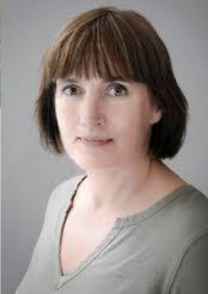 |
Dr Elspeth Haston is the Deputy Herbarium Curator at the Royal Botanic Garden Edinburgh, where she is leading the Herbariuim Digitisation Programme. She has developed large-scale herbarium digitisation methodologies and workflows for in-house digitisation and is helping to lead the development of standards for the Minimal Information for Digital Specimens (MIDS) and for the management of authority names in natural history collections. |
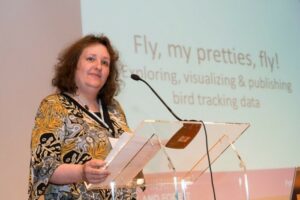 |
Dr Patricia Mergen is a liaison officer at Meise Botanic Garden and Royal Museum for Central Africa. She has been involved in biodiversity information since 2002. Currently she is part of the GBIF mentoring and training program and board member of TDWG (Biodiversity Information Standards). |
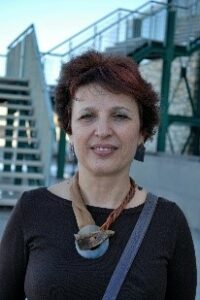 |
Dr Catherina Voreadou is the head of Hydrobiology Lab of the Natural History Museum of the University of Crete. In parallel, since 1998 she is the head of Education and since 2012 she is leading also the Centre of Environmental Training of NHMC responsible for Life Long Learning. Member of the Greek National Accreditation Centre for Continuing Vocational Training (EKEPIS), as trainer for adults. She has coordinated or participated in 19 Research Educational and Training projects funded either by National or European sources. She is the author and editor of many Educational editions. |
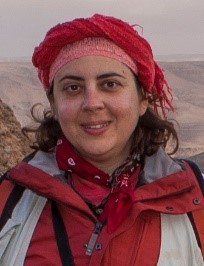 |
Dr Iasmi Stathi is a scorpiologist in the Natural History Museum of the University of Crete. Member of the Greek National Accreditation Centre for Continuing Vocational Training (EKEPIS), as trainer for adults. Eleven years of experience in Environmental Education Programs, Training for Life Long Learning Education and Education Research and Development at the Dept. of Education, NHMC. She has also participated in 14 Research Educational projects funded either by National or European sources. |
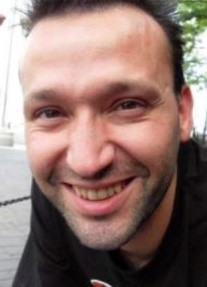 |
Dimitri Brosens, MSc, is the Biodiversity Data Liaison Manager from the Belgian Biodiversity Platform in the Flemish Research Institute for Nature and Forest since early 2009. The ultimate goal of Dimitri is to get Belgium on the world map of biodiversity data. He has a particular interest in the publication, standardization and interoperability of biodiversity datasets. |
 |
Prof Greg Riccardi is a member of the faculty of the School of Information at Florida State University. He is a computer scientist by training and has been working with informatics issues in biodiversity for many years. He is one of the principal investigators of iDigBio.org, which is the enabling organization of the large Advancing Digitization of Biodiversity Collections program of the US National Science Foundation. His group at iDigBio is responsible for workforce development and digitization practices. |
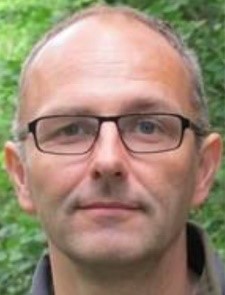 |
Dr Quentin Groom is a data scientist at Meise Botanic Garden where he works on data publishing. In recent years, he has been digitizing the herbarium and he works on the informatics component of this. When he has time for research he focuses on using data to learn about biogeography, particularly of invasive species. He is also the current secretary of the Biodiversity Information Standards organisation, often known as TDWG. |
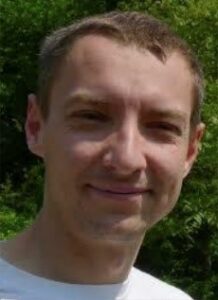 |
Dr Piotr Tykarski works at the University of Warsaw, teaching entomology, invertebrate zoology, ecology and GIS. His scientific interests focus on saproxylic beetles and, factors and patterns in biodiversity. He has been involved in biodiversity informatics activities and GBIF in Poland since 2003. Currently in this respect he plays a double role of a node manager and a HoD of GBIF for Poland. |
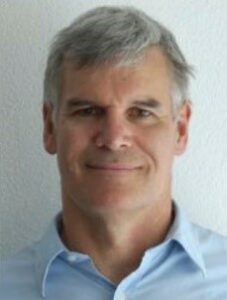 |
Dr Donat Agosti is by training ant taxonomist and begun in the 90ties to develop standard protocol to measure and monitor ants for conservation and scientific purposes, and using the Internet to share data needed for successful projects. He is founding president of Plazi, a Swiss based international NGO with the mission to liberate scholarly published taxonomic data. This includes mining scholarly articles for taxonomic data, make it findable, citable and reusable and assure that the data is used such as is the case with the Global Biodiversity Information Facility (GBIF). |
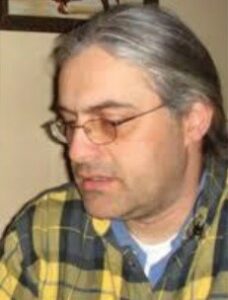 |
Dr Christos Arvanitidis, IMBBC, HCMR is Research Director, head of the Biodiversity laboratory. His research focuses on marine biodiversity, biodiversity informatics, functional diversity, and coastal ecosystems. He works on the comparisons of marine biodiversity information patterns deriving from various biological organization levels and scales of observation, trying to develop new approaches to explore their interrelationships. |
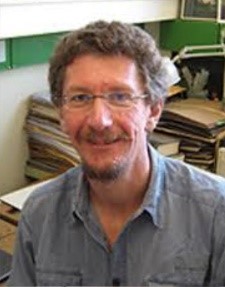 |
Dr Heimo Rainer is a curator in the Viennese Herbaria of the NHM (W) and the University (WU) and coordinates digitization there. They have established the Virtual Herbaria Platform JACQ a consortium of 40+ institutions and individuals. His research focus is the taxonomy of a tropical plant genus Annona. |
LOGISTICS
Venue
Management Committee and All hands meeting (12-13 March 2019), Bulgarian Academy of Sciences – Campus 1, Hotel of Bulgarian Academy of Sciences (HBAS) and Institute of Mechanics (IM) (Block 4). Meeting rooms are in both buildings (at 200 m from one another).
Registration desk, lunch on 12 and 13 March and cocktail (dinner) on 12 March at HBAS
Training school (14-15 March 2019), Bulgarian Academy of Sciences – Campus 1, Institute of Mechanics (IM) (Block 4)
Transport
- By plane
All relevant information arriving in Sofia by plane can be found at Sofia Airport.
Sofia Airport is located about 10 km east of the city centre. The airport has two terminals (Terminal 1 and Terminal 2). Regular airlines make their flights to Terminal 2, and Terminal 1 is mainly used for low-cost and charter flights.
From Sofia Airport to Sofia City (and vice versa) you can easily get around by taxi, busses or metro.
By taxi:
Taxi from the airport to the centre of Sofia costs about 8-10 Leva (BGN) [4-5€]. We strongly recommend to use only the licensed taxi company for airport services OK SUPERTRANS. The taxi stop is located adjacent to Terminal 2, west to it (but not in front of it, where frequently fake taxi cars appear working at the rate much higher than that of the licensed company).
By bus:
Busses Nos. 84 and 184 travel from Sofia Airport to the city centre (Sofia University). Buses run at intervals of 15-30 min depending on the time and day. The price of a single ticket is 1.60 Leva (BGN) [= 0.8€], and the trip in one direction continues about 25 minutes. According to the city transport regulations, if you have a suitcase or bag bigger than 40 x 40 x 60 cm, you need to have a second ticket at the same price as for a passenger. The tickets are purchased on the stops, before getting on the bus.
The name of the nearest bus stop for the venue of our event is “Hotel Pliska” for both lines.
By Metro:
You can use to run from and to the airport Line 1 of the Sofia Metro. The stop is in the eastern part of Terminal 2 and you can easily reach it by following the blue line on the floor in the public area of the terminal. The subway line allows connection to the city centre, central bus station and central railway station in less than 30 minutes. Trains run from 5:30 to 24:00.
The name of the nearest metro station for the venue of our event is “Joliot-Curie”. Get out the subway, go along Joliot Curie Street to the north and cross Tsarigradsko shosse Boulevard. The Institute of Mechanics is situated on Acad. G. Bonchev Street, block 4.
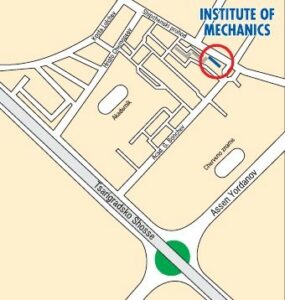
- By train or bus
The central bus station is adjacent to the central railway station. For the area of the event, you can travel by the licensed taxi company for airport services OK SUPERTRANS, or take busses Nos. 213 or 305 to “Hotel Pliska” bus stop (some 30 min).
More information about Sofia can be found at the Sofia Municipality official webpage and Welcome in Sofia.
Accommodation
There are numerous accommodation possibilities in Sofia. We suggest choosing some situated at a walking distance from the venue of the events:
| Hotel of Bulgarian Academy of Sciences
50 Shipchenski Prohod Street, 1113 Sofia https://www.booking.com/hotel/bg/dom-na-ucheniya-ban.en-gb.html Situated in Campus 1 of Bulgarian Academy of Sciences. The program of the meeting is partly based on the facilities of this hotel: workshops, lunch breaks and cocktail. The registration desk will be also organised in this hotel. The main conference hall (Institute of Mechanics) is at 200 m from it. |
| Hotel Kibella
26, Alexander von Humboldt Street, 1113 Sofia At walking distance from the venue (15 min). |
| Hotel Rotasar
Liditze Street and Kosta Lulchev Street, 1113 Sofia At walking distance from the venue (15 min). |
| Hotel Rai
6 Akademik Nikola Obreshkov Street, 1113 Sofia At walking distance from the venue (10 min). |
| Best Western Europe Hotel
https://www.visitbulgaria.net/en/sofia/hotels/best_western_europe_hotel.html 1 Liditze Street, 1113 Sofia At walking distance from the venue (15 min). More luxury and more expensive option than those mentioned above it. |
| Park Hotel Moskva
25 Nezabravka Street, 1113 Sofia https://www.parkhotelmoskva.net/?lang=en At walking distance from the venue (30 min). The most luxury option in the neighbourhood. Close to the Joliot-Curie Metro Station (direct connection to the Sofia Airport). |
 FINAL SOFIA TRAINING SCHOOL INFO 29 JAN 2019ocx
FINAL SOFIA TRAINING SCHOOL INFO 29 JAN 2019ocx SOFIA TRAINING SCHOOL LEAFLET
SOFIA TRAINING SCHOOL LEAFLET Training School Registration Form (click here)
Training School Registration Form (click here) Training School Evaluation Questionnaire (click here)
Training School Evaluation Questionnaire (click here)

